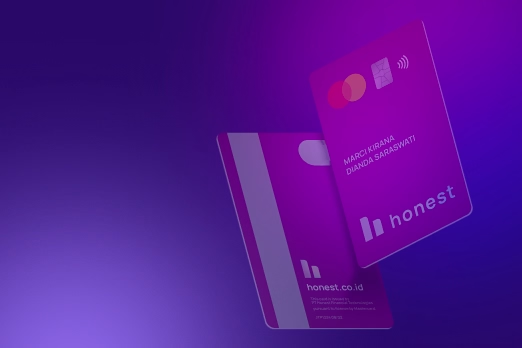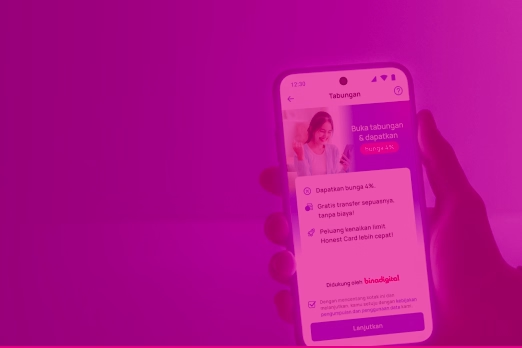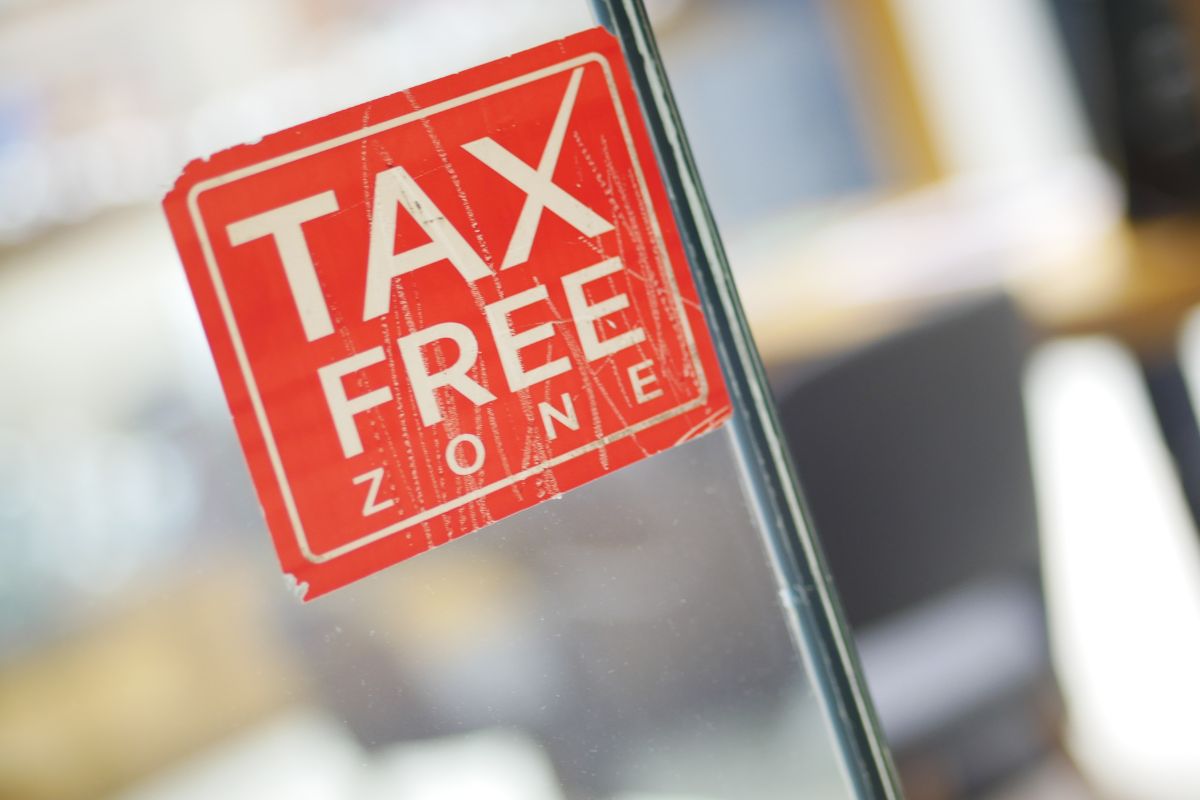Similar but not the same: the difference between credit cards and paylater
Need something but don’t have the budget for it yet? No worries! You can use a credit card or paylater to make your purchase. While both are forms of credit facilities, they have distinct differences. Here's everything you need to know about the differences between credit cards and paylater options.
What is a credit card?

A credit card is a payment facility issued by banks or financial institutions to make transactions easier for customers. With technological advancements, you can now get credit cards in both physical and virtual forms via apps provided by the card issuer.
Unlike ATM or debit cards, paying with a credit card doesn’t deduct money from your savings account. However, you must repay the outstanding amount or installment by the due date set by the bank. You have the option to pay less than the full amount, as long as you meet the minimum payment required. But keep in mind, unpaid balances will incur interest charges in the following month.
What is paylater?

Paylater is a relatively new credit payment facility. This feature is commonly offered by marketplace apps, but some banks have also started providing paylater options.
The use of paylater varies depending on the provider. If offered by marketplaces like Shopee or Tokopedia, it’s typically limited to purchases within that platform. In contrast, paylater from banks tends to be more flexible, allowing broader usage.
Like credit cards, you can use paylater to buy products on your favorite marketplace without paying cash upfront. However, you’ll need to pay the total bill within a certain period, along with the specified fees and interest.
Key differences between credit cards and paylater
To help clarify, here are the main differences between credit cards and paylater options, along with their respective benefits:
1. Card facility and usage
Paylater services typically don’t come with a physical card and can only be accessed through specific apps. As a result, most paylater options can’t be used for offline purchases or outside the app’s ecosystem.
Credit cards, on the other hand, usually come in a physical form that includes essential details like the card number, expiry date, and CVV/CVC code. These details must be kept confidential to prevent unauthorized use. To enhance security, Honest credit cards display this information only within the app and not on the physical card itself.
Credit cards can be used for both online and offline transactions. For example, you can use your credit card to subscribe to Netflix by entering your card details in the payment method. The subscription fee will then be automatically included in your credit card bill.
2. Limit
The limit-setting mechanism differs between credit cards and paylater. For credit cards, the limit is restored to its original value once you fully repay the outstanding balance. For instance, if your credit card has a limit of Rp5.000.000 and you spend Rp1.000.000. repaying the Rp1.000.000 restores your limit to Rp5.000.000.
The credit limit is determined by the bank based on your creditworthiness and other financial data, making the application process for credit cards generally more stringent than for paylater.
In contrast, the paylater limit can vary depending on the user’s payment habits and the merchant’s policy. The more diligently you pay your bills on time and use the service for purchases, the higher the limit you can get.
3. Billing and payment mechanism
Another difference between credit cards and paylater is the way bills are paid. For credit cards, you’ll receive a monthly bill, and you can choose to pay the minimum amount, the full amount, or any amount in between. For example, if your credit card bill is Rp1,000,000 and the minimum payment is Rp50,000 (5% of the total bill), you can pay Rp1,000,000 in full, just Rp50,000, or any amount in between.
With paylater, on the other hand, you have two options at the time of transaction: pay in full at the due date or convert the amount into monthly installments. For instance, if you purchase an item for Rp1,000,000, you can choose to pay Rp1,000,000 at the due date or opt for a 3-month, 6-month, or 12-month installment plan (with interest). However, once you choose an installment plan, you must stick to it until the balance is fully repaid, as the payment scheme cannot be changed.
4. Benefit
Credit cards generally offer more extensive benefits compared to paylater services. Paylater typically provides shopping discounts at specific merchants. Credit cards, however, offer additional perks such as shopping discounts, reward points (e.g., miles), and usability abroad.
Reward points can be redeemed for extra benefits like waived annual fees, higher discounts at partner merchants, or even access to exclusive airport lounges. However, these benefits depend on the policies of the credit card issuer.
5. Application process
Although both can be issued by banks, applying for a paylater is generally faster and easier than applying for a credit card. You’re typically required to upload an ID photo, a selfie (with or without your ID), and other personal data. The process often takes less than an hour.
However, this doesn’t mean your application will always be approved. Applications can be rejected due to poor image quality or if your credit score and income don’t meet the provider’s criteria.
Credit card applications, on the other hand, are more time-consuming and require more documentation. This is because banks must thoroughly assess your ability to repay. It’s not uncommon for credit card approvals to take up to seven business days.
However, Honest credit cards streamline the process. You only need to download the Honest App, upload your ID, and provide an active WhatsApp number. The application process can be completed in as little as two hours. Once approved, you often can start using your Honest credit card for online shopping even if the physical card hasn’t arrived yet.
6. Costs and fees
When applying for a credit facility like a credit card or paylater, it’s important to be aware of the costs involved, as these will impact your monthly payments.
Interest rate
Credit cards have a maximum interest rate of 1.75% per month as regulated by Bank Indonesia. This interest is calculated daily based on the unpaid balance and is charged if the bill is not fully paid by the due date.
Meanwhile, paylater services have varying interest rates depending on the provider. For example, Shopee PayLater charges a minimum interest rate of 2.95% per month, while Kredivo charges 2.6% per month for a 6-12 month term. Some paylater services also apply daily interest, which continues to accrue based on the total loan amount if payment is delayed.
Other fees
In addition to interest, paylater services generally charge administrative fees and late payment penalties. The amount of these fees depends on the loan amount and the length of the delay. Each provider has its own policies regarding these additional fees.
On the other hand, credit card fees are relatively more varied as these facilities offer additional features such as physical cards, cash withdrawals, and international transactions. Common fees include annual fees, card replacement fees for lost or damaged cards, and foreign transaction fees. The exact amounts vary depending on the policies of the issuing bank.
To simplify these costs, you can use an Honest credit card. With Honest, all these fees—except for interest—are consolidated into a single administrative fee. The amount of this administrative fee depends on the total bill, meaning if you don’t make any purchases with the card, you won’t incur any administrative fees. For more detailed information about these transaction fees, you can visit Honest's website.
7. Impact on credit score
Credit cards are issued by banks, which are among the most tightly regulated financial institutions in Indonesia. Misusing credit cards can directly impact your credit score in OJK’s SLIK system, potentially making it harder to obtain other banking loans in the future.
Paylater services, being relatively new, are not always integrated into Indonesia’s credit scoring system. While some providers report to credit bureaus, many do not, meaning your paylater payment habits may not impact your credit score.
8. Usage flexibility
Did you know that credit cards can be used abroad? That’s because most credit card issuers in Indonesia partner with international payment networks like Visa, Mastercard, UnionPay, and JCB, allowing you to use your card in many countries. Additionally, credit cards can be used for subscription services like Netflix and Spotify.
Paylater, on the other hand, is usually tied to a specific marketplace or app. This means paylater can only be used for purchases within that app and cannot be used abroad.
9. Debt management
The final difference between credit cards and paylater lies in their debt management systems. With credit cards, debt repayment is flexible, allowing users to make minimum payments each month. However, if only the minimum payment is made continuously, the debt can grow significantly due to compounding interest, which is calculated based on the remaining balance plus any unpaid interest from the previous period.
For this reason, using a credit card requires good financial management to ensure payments are made on time and within your financial capacity. With proper management, a credit card can be a flexible and beneficial payment tool without the risk of accumulating uncontrollable debt.
Paylater operates on a slightly different system. The installment amounts are fixed and tailored to the loan amount and interest rate. For example, if you purchase a phone worth Rp3,000,000 using paylater, you may be given options for a 3-month installment with 3% interest, a 6-month installment with 5% interest, or a 12-month installment with 12% interest. If you choose the 12-month plan, your monthly payment will remain constant, such as Rp280,000 (Rp250,000 principal + Rp30,000 interest). This fixed system makes it easier for users to calculate their installments and helps prevent long-term debt accumulation, provided payments are made on time.
Both credit cards and paylater options simplify transactions, enabling you to buy the things you need. However, as both are forms of credit, it’s essential to use them wisely. Avoid impulsive spending and monitor your usage regularly. These facilities are designed to make life easier—not more complicated.
What are you waiting for?
Get your Honest Card today










